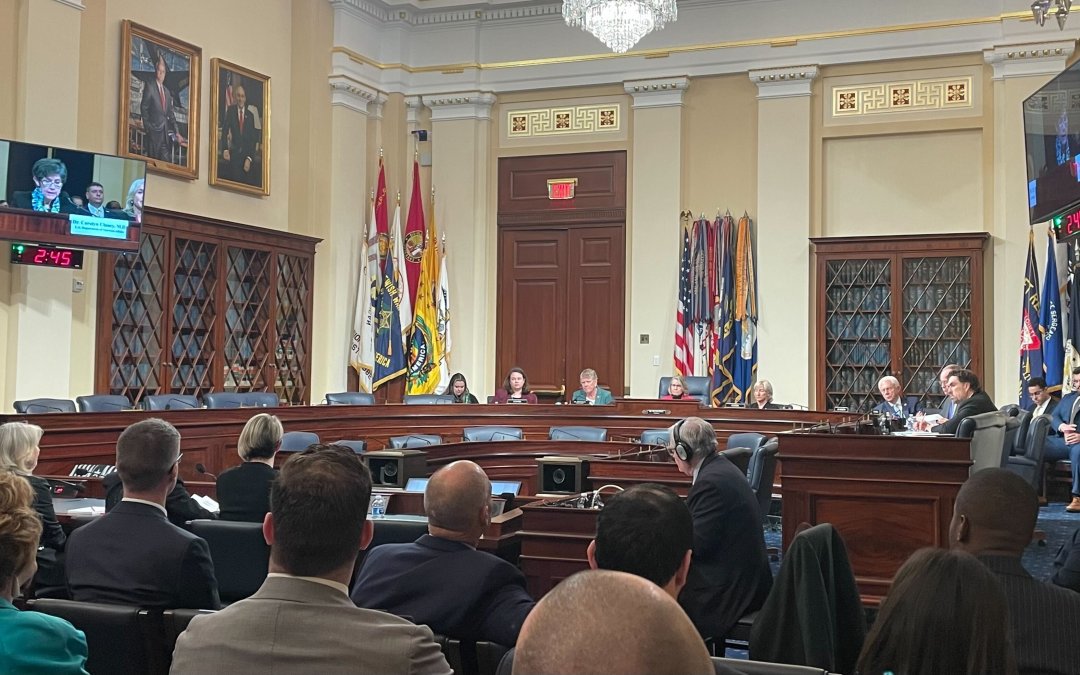WASHINGTON — Marine veteran Jonathan Lubecky attempted suicide five times after returning home from deployment in Iraq in 2006.
“I am not special. My story is the same as every other veteran suffering with PTSD,” Lubecky said.
An average of 16.8 veterans commit suicide daily in the U.S. Lubecky was almost one of them. In 2014, desperate to cure his PTSD, he ultimately enlisted the help of an unlikely drug: MDMA, or ecstasy.
“My story changes because I went through MDMA-assisted therapy. I was blessed by being able to participate in a clinical trial,” Lubecky told lawmakers on Tuesday in a House Committee on Veterans’ Affairs Health Subcommittee hearing, the first congressional hearing on the topic.
MDMA-assisted therapy, which involves administering the drug to patients in a controlled environment followed by a psychotherapy appointment, has largely proven to be effective in treating PTSD. The hormonal response the drug elucidates allows patients to more openly discuss traumatic events with providers. Researchers on the clinical trial Lubecky participated in found that over 71 percent of participants no longer met the diagnostic criteria for PTSD.
However, no clinical trials have been funded by the Department of Veterans’ Affairs (VA), despite its voiced commitment to supporting interventions that promote the health and wellbeing of veterans.
“I would like to see the VA lead this,” said Rep. Morgan Luttrell (R-Texas), who said psychedelic-assisted therapy cured his own PTSD following his time in the military. “Our veterans are ready.”
Witnesses at Tuesday’s hearing — which included Lubecky and veteran mental health advocates — said federal investment by the VA is necessary to advance research on the benefits of psychedelics.
“Private funding for novel therapies for mental health conditions is waning,” said Rajeev Ramchand, co-director of the RAND Epstein Family Veterans Policy Research Institute. The trial Lubecky participated in, along with all current psychedelic-assisted therapy trials, was privately funded.
CIn order to increase federal funding, witnesses said, MDMA must be rescheduled from a Schedule I to a Schedule II drug, a provision included in the bipartisan Breakthrough Therapies Act. The Drug Enforcement Agency’s Schedule I designation is given to substances that have “no currently accepted medical use and a high potential for abuse.”
“The Schedule I status of MDMA…under the Controlled Substances Act slows down the necessary clinical research and has resulted in a lack of public funding needed for such widespread trials,” said Brett Waters, executive director of Reason for Hope and Veteran Mental Health Leadership Coalition, during the hearing.
MDMA will automatically be granted Schedule II status if it is approved by the FDA, which, given promising clinical trial data, could occur as soon as 2024. The psychedelic has already been granted “breakthrough therapy” status by the agency, meaning the FDA must make a decision on approving the therapy within six months of receiving the new drug application, which the organization currently leading these trials plans to submit by the year’s end.
But Waters argued that rescheduling of the drug should come before FDA approval.
“I believe that it is necessary and logical that this should happen now…,” he said. “[It] will make it easier to do research on them and to enable compassionate use of these treatments. That will be able to help deliver the evidence and give us a better understanding of real-world studies.”
While lawmakers in the committee did not comment on acting on MDMA’s rescheduling, they stressed a need for the VA to ensure that its workforce is prepared for the treatment’s approval.
“In war fighting, training and readiness is everything, and we train in advance knowing the fight’s coming. You know the fight’s coming, and, in this case, a good fight,” said Rep. Jack Bergman (R-Mich.), co-chair of the Psychedelics Advancing Therapies Caucus, about the need for the VA to prepare providers for MDMA approval.
VA health officials said that while clinical trial providers are already trained, they will continue looking into best practices to support their workforce depending on what safety and risk management protocols the FDA issues for MDMA-assisted psychotherapy.
Lawmakers noted that best practices are especially important in preventing potential misuse of the drug.
“People will find a way to abuse these medicines because it’s a drug; it’s one of these things that will be abused,” Rep. Greg Murphy (R-N.C.) said. “Putting guardrails up as stringently as possible is going to be critical.” VA researchers noted that clinical trial patients did not seek out recreational use following the trial and that they have not yet encountered long-term side effects from the drug.
While recognizing promising data so far, officials stressed that “there is still much to learn.” Dr. Carolyn Clancy, Assistant Under Secretary for Health for Discovery, Education and Affiliate Networks at the Veterans Health Administration, said a focus should be put on conducting more clinical trials within the veteran population, specifically, given their unique physical and mental health challenges versus other PTSD patients.
Throughout Tuesday’s hearing there was general consensus across party lines that psychedelic-assisted therapy could be the future of mental health care, particularly for veterans.
“We are not advocating for the legalization or casual use of psychedelics,” said subcommittee Chairwoman Mariannette Miller-Meeks (R-Iowa). “But rather the advancement of science — of their medicinal properties in a clinical setting — with assisted therapy.”


